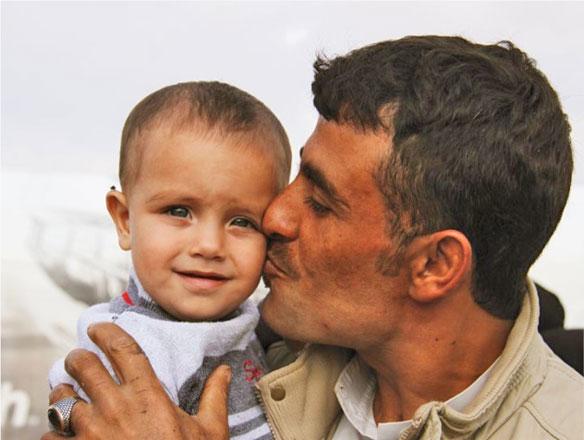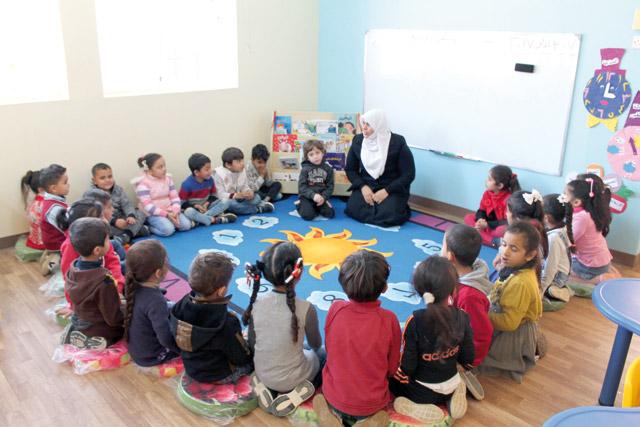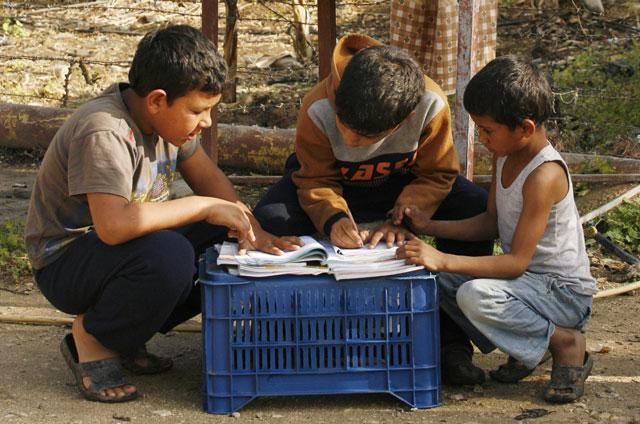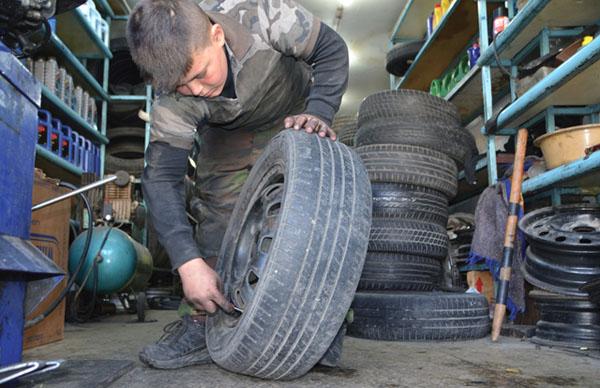You are here
First years of life most critical for a child’s future — UNICEF
By JT - Dec 23,2017 - Last updated at Dec 23,2017

Investing more in the first 1,000 days of every child’s life, can vastly improve their future wellbeing, happiness, educational achievement and income, shows a UNICEF report on Early Childhood Development (Photo courtesy of UNICEF)
AMMAN — Investing more in the first 1,000 days of every child’s life, can vastly improve their future wellbeing, happiness, educational achievement and income, shows a UNICEF report on Early Childhood Development (ECD).
The “Early Moments Matter for Every Child” report launched Saturday by UNICEF Jordan with the support of the Ministries for Social Development, Education, Health and Awqaf, shows that the period from conception up until the start of school opens a critical and singular window of opportunity to shape the development of a child’s brain, a statement from the UN agency said.
“Failure to do so, can impact a child’s ability to grow and learn, and even reduce their future earnings by 25 per cent,” the report adds.
“We’re talking about an enormous opportunity to change the lives of generations of children by investing more in those first critical years of growth,” Robert Jenkins, UNICEF Representative in Jordan, was quoted in the statement as saying.
“Jordan has made huge inroads in improving education access over recent years, and now is the time to turn our attention to the youngest in society.”
The report makes six recommendations to governments and businesses to ensure the best start in life for every child: Increase investment in ECD services, increase access to these services, adopt family friendly policies, ensure better data collection, improve leadership and collaboration across sectors and increase demand for ECD.
In Jordan, there is still a gap in children accessing early childhood development integrated services, such as parenting support programmes. Quality daycares or nurseries are scarce — only 13 per cent of children aged 4-5 years attend formal pre-school, while an estimated 59 per cent of the country’s five-year-old children attend KG2. The numbers are even lower for children 3 years and under with only 3 per cent enrolled in any kind of childcare setting, according to the statement.
Low enrollment in pre-primary education means children entering school without the necessary cognitive and social skills. UNICEF is supporting the Ministry of Education’s plan to universalise access to pre-primary education (KG2) by 2025 and increase access to services for younger children (KG1 and nurseries).
Minister of Education Omar Razzaz said in the statement: “Science clearly tells us that play-based learning is key for children to prepare for entering primary school. Our vision is to provide Early Childhood Development services at scale without compromising quality so that children in Jordan realise their full potential.”
The report outlines how adults have the responsibility to create the environment for a child’s development, through appropriate nutrition, health, stimulation and protection combined, while also preventing possible sources of disruptive toxic stress including neglect, lack of learning opportunities and violence.
In Jordan, close to 90 per cent of children aged 2-14 years surveyed were reported to be subjected to a violent form of discipline — with one in five subjected to severe physical punishment, the statement said.
UNICEF has partnered with the government to help over 200,000 parents and caregivers provide a caring, protective and nurturing environment for their children in since 1996 through the Better Parenting Programme (this “successful” case study features in the report), according to the report.
“A healthy family is the nucleus around which a society is built. It raises individuals who are capable of thinking and engaging in dialogue, leading them to become innovative members of the society, advancing and developing it, and finally empowering their societies,“ Hala Lattouf, minister of social development, was quoted in the statement as saying.
“Therefore, caring for and nurturing children in the best way possible is a fundamental requirement, and an important investment in the future. The better the care and nurturing they receive, the better their future and the future of the country will be,” she noted.
“UNICEF is working closely with the government and the private sector on an ambitious plan to scale up quality early childhood interventions, including parenting support programmes, nurseries and pre-primary education, for the benefit of all children and the future prosperity of this country, which they will ultimately shape,” Jenkins added.
The Ministry of Education and UNICEF estimate that $198 million in funding is required to directly provide an additional 63,000 children in Jordan with access to a stimulating and safe environment for early learning and development over eight years.
Related Articles
AMMAN — The Ministry of Education and UNICEF on Monday launched an eight-year executive plan (2017-2025) aimed at “universalising access” to
Poverty, gender discrimination and violence are keeping more than 12 million children in the Middle East out of school, despite efforts to expand education, the UN children's agency warned Wednesday.
Over 75,000 vulnerable and disadvantaged children in Jordan are out of school — the majority of whom are at the pre-primary stage, but also significant numbers are in the primary and lower secondary levels, according to a report launched on Tuesday.



















